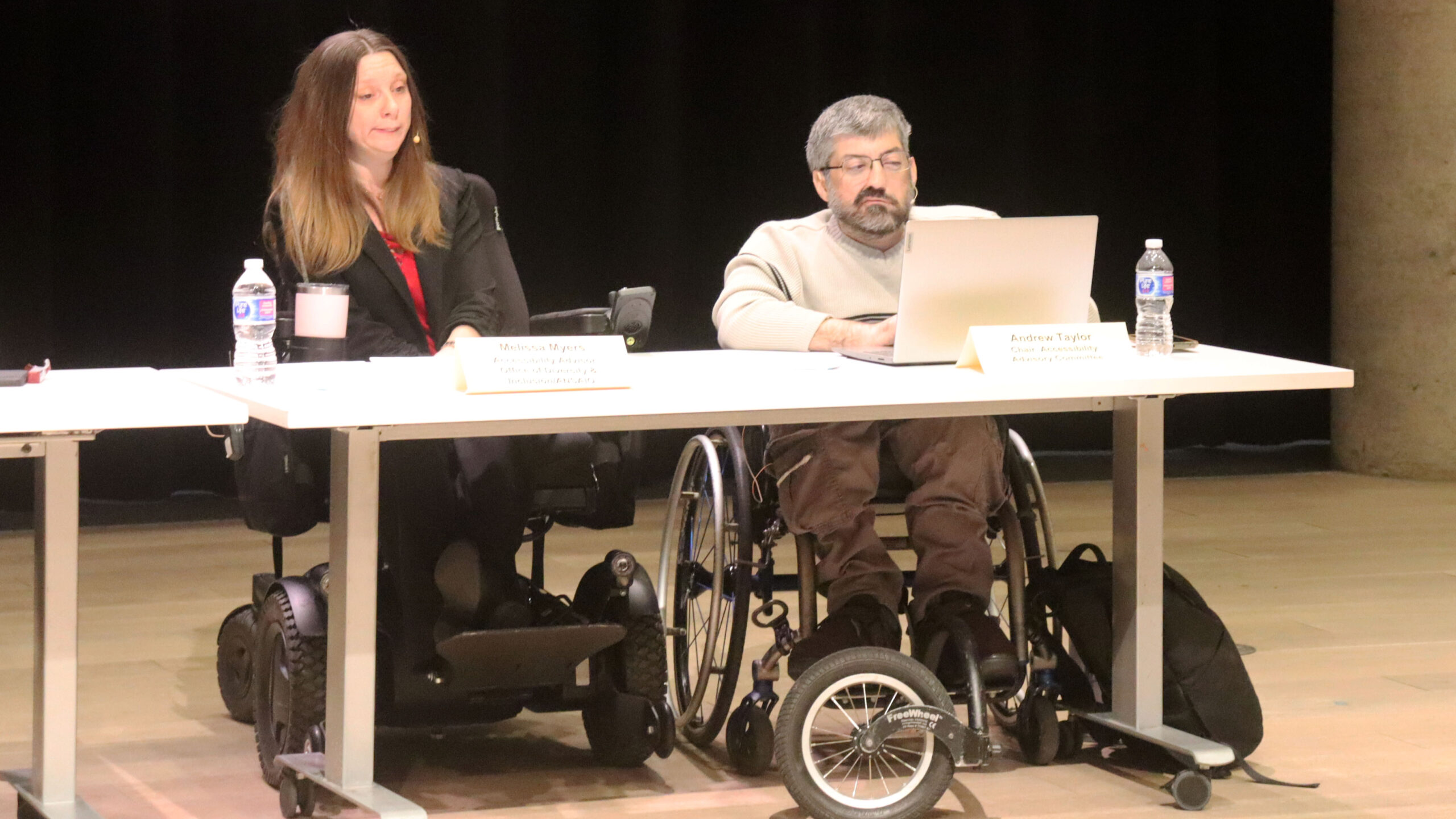Number of homeless with accessibility needs expected to double
Town hall holds discussion on plans to make city more accessible

caption
Melissa Myers, (left), an accessibility officer for HRM, and Andrew Taylor, chair of accessibility advisory committee, participate in an annual town hall.Almost two-thirds of unhoused people in Halifax have accessibility needs, the regional municipality’s housing director reported Tuesday.
Out of 1,000 unhoused people in the city, 67 per cent experience mental health challenges, said housing and homelessness director Max Chauvin. Additionally, 39 per cent have a learning disability or cognitive challenge, 36 per cent have a disability and 22 per cent have an after-birth brain injury.
These numbers were drawn from a registry of homeless people conducted by the city.
Chauvin said the number of unhoused people with a disability will soon double.
“For every tent you see, for every person who is couch surfing, there will be two of them in months.”
Chauvin made the comments at a town hall organized by the municipality’s accessibility advisory committee at the Halifax Central Library. About 50 people attended.
The municipality is working to provide support to unhoused people, including those with accessibility needs, Chauvin said.
He said this includes connecting people to health-care services such as physiotherapy and osteopathy, and helping people who live in tents get in and out of wheelchairs.
“The people who are sleeping on our streets are our citizens, neighbours, family members, friends,” Chauvin said.
During a Q&A period, some community members expressed concern about the growing number of unhoused people with disabilities. They said instead of building shelters, more long-term, accessible housing solutions should be created.
“A shelter is not a solution, it’s a band-aid,” Chauvin replied.
He said the city lacks accessible and affordable housing.
“We know that rents are extremely high. And for a unit that’s got any level of support, they’re even higher.” But “through a careful design, we could make a staggering difference,” he said.
To lift some people with disabilities out of poverty and homelessness, some residents said more social assistance should be provided, along with supports in finding appropriate employment.
“How can get them employed so they can stay in the homes you’re building them? How are we going to put them back to work? How are we going to put these people with disabilities, who, somehow they landed on the streets in the first place, how are we going to make it so they afford to keep these homes?” asked one attendee named Heidi.
Making transportation more accessible
The committee also heard from David Nantau, a supervisor at Halifax Transit. He said by 2023 all bus stops will meet CSA accessibility standards. These standards work to ensure that buildings and other facilities are accessible to people with “physical, sensory, and/or cognitive disabilities,” wrote the CSA group on their website.
Some attendees said if sidewalks remain inaccessible, people with disabilities will still struggle to navigate around the city.
Concerns were also raised about the lack of accessible seating on buses, and difficulties using transit and Access-A-Bus without having a smartphone.
More changes
Erika Fleck, director of emergency management, announced the implementation of the Voluntary Vulnerable Persons Registry. The registry is designed to provide accommodations to people in emergency situations such as power outages and storms.
Fleck also said more braille materials on brochures and business cards will become available. This was met by applause.
Others said they were happy that the vulnerable persons registry has been set up and said it had been discussed at the annual meeting for the past few years.
Darren Young, HRM’s manager of major projects, said people can also expect polling stations to be fully accessible next year.
About the author
Hope Edmond
Hope Edmond is a master's of journalism student from Enfield, Nova Scotia. She enjoys sharing the stories of others.
